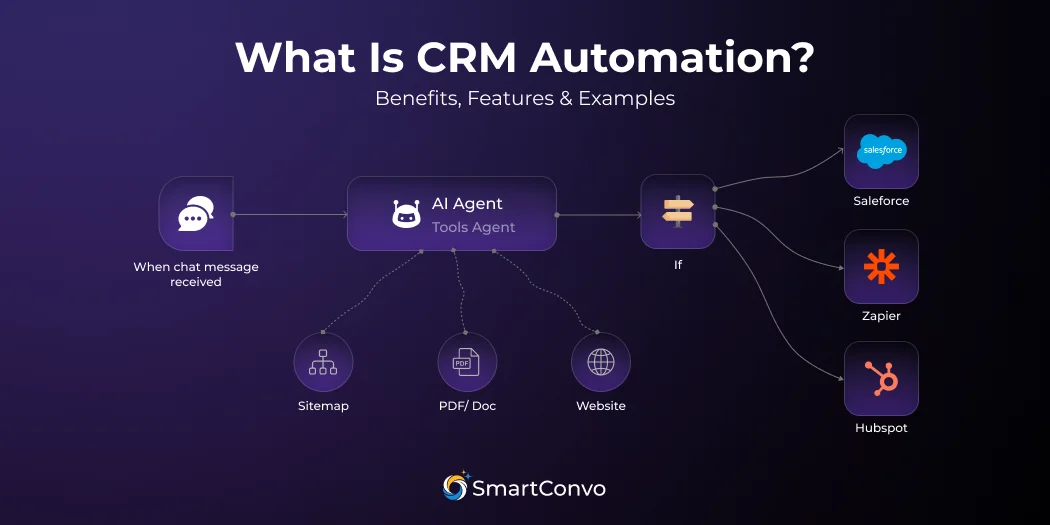Have you ever called a company for help, sent a chat message to ask about a product, or emailed an organization to resolve an issue? If so, chances are you’ve interacted with a customer service agent.
These essential professionals are the backbone of a company’s customer support system. They not only help customers solve problems and answer questions but also play a vital role in shaping the overall customer experience.
By addressing issues effectively and with empathy, they ensure customer satisfaction while representing the brand’s personality, values, and commitment to quality service. Their work often serves as a direct reflection of how much a company values its customers.
Whether you’re a career changer exploring new opportunities, an HR professional hiring for this role, or simply curious about the world of customer support, this blog will break down everything you need to know, from the customer care agent job description, key responsibilities, and essential skills to the challenges and benefits of the role.
What is a Customer Service Agent?
A customer service agent (sometimes referred to as a customer care agent or service agent) is a professional who serves as the first point of contact between a company and its customers. Their primary role is to assist customers by answering inquiries, resolving issues, and providing detailed product or service information.
They may handle customer interactions through various channels, including phone calls, emails, live chat, or social media platforms.
Beyond addressing immediate concerns, customer service agents also play an important role in building trust and maintaining positive relationships with clients, ensuring their overall satisfaction and loyalty to the brand. In many cases, they are seen as the face of the company, making their role critical to shaping the customer experience.
Think of them as the bridge connecting businesses with their customers, ensuring smooth and effective communication that fosters trust and understanding. They play a critical role in addressing customer needs, resolving issues, and providing valuable feedback to the business.
All the while, they maintain a high standard of empathy, professionalism, and a commitment to delivering a positive experience that strengthens the relationship between the company and its customers.
Key Responsibilities of a Customer Service Agent

The customer service agent job description varies slightly depending on the industry and business type, but there are several universal responsibilities they carry out to ensure customer satisfaction:
1. Answering Customer Questions
A primary task for most agents is responding to customer queries via phone, email, live chat, or in-person interactions. This could involve explaining product features, providing store hours, or assisting with account setup.
2. Resolving Issues
Whether it’s a delayed delivery, a technical malfunction, or a billing error, resolving customer complaints is a core responsibility. AI customer service chatbots often help filter out simpler inquiries, but service agents step in when human understanding is needed.
3. Providing Product Information
Customers frequently need detailed product information to make informed purchasing decisions. A customer care agent job description almost always includes the ability to provide clear, accurate, and persuasive details about a company’s offerings.
4. Processing Orders and Returns
Agents play an active role in ensuring smooth and hassle-free transactions for customers. They assist with placing orders by providing guidance through the purchasing process, help track shipments to keep customers updated on delivery timelines, and efficiently handle returns or exchanges.
5. Logging Interactions
Handling large volumes of customer interactions requires keeping an efficient record of each conversation for future reference. Many organizations use tools like a multi-agent system to manage inquiries and share relevant updates in real time.
6. Upselling or Cross-Selling
Beyond solving problems, many customer service agents use their communication skills to introduce customers to complementary products or upgrades, boosting revenue for the company.
Why is the Role of a Customer Service Agent Important?
Customer service agents are a vital part of customer support, acting as the frontline representatives of a business. They are often the first point of contact for customers, handling inquiries, resolving issues, and providing guidance.
Why do they matter? They don’t just ensure customer satisfaction; they play a key role in shaping the overall customer experience. A positive interaction with a skilled agent can build trust, enhance a company’s reputation, and improve customer retention..
Positive experiences can turn a one-time customer into a loyal advocate who not only continues to purchase but also recommends your business to others. On the flip side, poor customer service can quickly lead to lost business, negative reviews, and damage to your brand reputation.
This highlights why hiring and training quality service agents is essential for companies that prioritize outstanding customer experiences, whether through a highly efficient chatbot for customer service or personal, human interactions.
Essential Skills Required for Customer Service Agents

What characteristics make a stellar service agent? While specific roles demand specialized knowledge, these core skills are essential for success:
1. Communication Skills
Clarity, politeness, and an active listening ear are critical for answering inquiries effectively, whether speaking or writing. Being clear ensures your message is easily understood, politeness fosters a positive tone and builds rapport, and active listening helps you fully grasp the question or concern.
2. Problem-Solving
One of the greatest skills a customer service agent needs is the ability to analyze situations quickly, assess the customer’s needs, and offer practical solutions that resolve issues effectively with minimal conflict.
3. Patience and Empathy
Dealing with frustrated or upset customers requires immense patience. Agents must also demonstrate empathy by validating customers’ concerns. This not only soothes the customer but builds trust.
4. Technical Skill
With technology like HR chatbots and AI agents becoming a regular feature in customer service departments, familiarity with systems and software is critical for staying competitive. These tools are designed to streamline interactions, handle repetitive tasks, and improve response times
5. Time Management
Agents often juggle multiple inquiries at once, managing a variety of customer needs and questions simultaneously. Prioritization and efficiency are key to ensuring that no customer feels neglected, allowing agents to provide timely responses while maintaining high-quality service.
Different Types of Customer Service Agents
Not all service agents perform the same role. Depending on the business, here are some of the most common types of service agents in the field today:
1. Inbound Support Agent
These agents primarily handle incoming queries and complaints. They’re at the front line of the customer experience, providing immediate assistance.
2. Outbound Support Agent
Unlike inbound agents, outbound professionals are focused on making proactive calls, often for sales support, follow-ups, or satisfaction checks.
3. Live Chat Agent
Chat agents answer questions quickly via web-based tools. They often use a chatbot for customer service to handle initial interactions and escalate inquiries as needed.
4. Technical Support Agent
These agents possess specialized knowledge and provide assistance around technical issues such as software troubleshooting and hardware repairs.
Different Types of Customer Service Agents
Service agents don’t all do the same job. Depending on the business, here are some of the most common types of service agents you’ll find today:
1. Inbound Support Agent
These agents primarily handle incoming queries and complaints from customers, addressing a wide range of issues such as technical support, billing concerns, or product inquiries. They’re at the front line of the customer experience, providing immediate assistance and ensuring that customers feel heard and valued.
2. Outbound Support Agent
Outbound agents focus on making calls to reach out to customers, often working from a list of leads or existing clients. Their responsibilities include generating sales, following up on previous interactions, and conducting satisfaction checks to ensure a positive customer experience.
3. Live Chat Agent
Chat agents are responsible for answering customer questions quickly and efficiently using web-based tools. They often rely on a chatbot for customer service to manage initial interactions, such as answering common questions or gathering essential information from customers.
4. Technical Support Agent
These agents possess specialized knowledge and provide assistance around a variety of technical issues, including diagnosing and resolving software problems, troubleshooting system errors, and performing hardware repairs.
Benefits of Being a Customer Service Agent
A job as a customer service agent can be incredibly rewarding. Here’s why many find this profession appealing.
- Job Availability: The demand for service agents spans across industries.
- Skill Development: It’s a great way to improve communication, multitasking, and problem-solving skills.
- Career Growth: From stepping into management roles to advancing in customer experience strategy, there’s plenty of room for growth.
- Sense of Accomplishment: Helping people solve problems can be immensely fulfilling.
Challenges Faced by Customer Service Agents
Like any role, being a service agent comes with its share of challenges.
- Dealing with Difficult Customers: Handling frustrated or angry customers can be emotionally taxing.
- Meeting Performance Metrics: Agents are often measured against strict KPIs like response time or resolution rate, which can add pressure.
- Repetitive Work: Responding to similar issues repeatedly can lead to burnout if not managed well.
With the right training and support (even involving tools like AI customer service chatbot systems), these challenges can be mitigated to focus on the rewarding aspects of the role.
No Credit Card Required | 14 days Free Trial
Build Your Chatbot
Conclusion
Start your career as a customer service agent and unlock endless opportunities for growth and development. This role is perfect for anyone looking to build valuable skills, whether you have a passion for helping others, enjoy solving problems, or want to gain experience that can open doors to new career paths.
Customer service agents play a vital role in creating positive experiences and fostering strong relationships between businesses and their customers.
In this position, you’ll not only improve your communication and interpersonal skills but also gain firsthand experience using tools like HR chatbots, AI answer generator, and customer management systems to provide efficient and effective support.
You’ll learn to handle a wide range of inquiries with professionalism and empathy while becoming an essential part of delivering excellent customer support. This role is a stepping stone for personal and professional growth, offering the chance to make a real impact while setting the foundation for a successful career.
Frequently Asked Questions (FAQ)
To provide support, resolve issues, and ensure customer satisfaction by serving as a bridge between the business and its clients.
Agent customer service refers to professionals who handle direct interactions with customers via mediums like calls, live chat, or in-person support.
Comprehensive communication, problem-solving, empathy, time management, and technical knowledge are among the top skills required.
Listen actively, empathize with their concerns, offer a clear solution, and ensure follow-through. Regularly using tools like AI answer solutions can upgrade complaint resolution processes.
From e-commerce and travel to banking, healthcare, and technology, nearly every industry relies on service agents to maintain connections with their clients.













